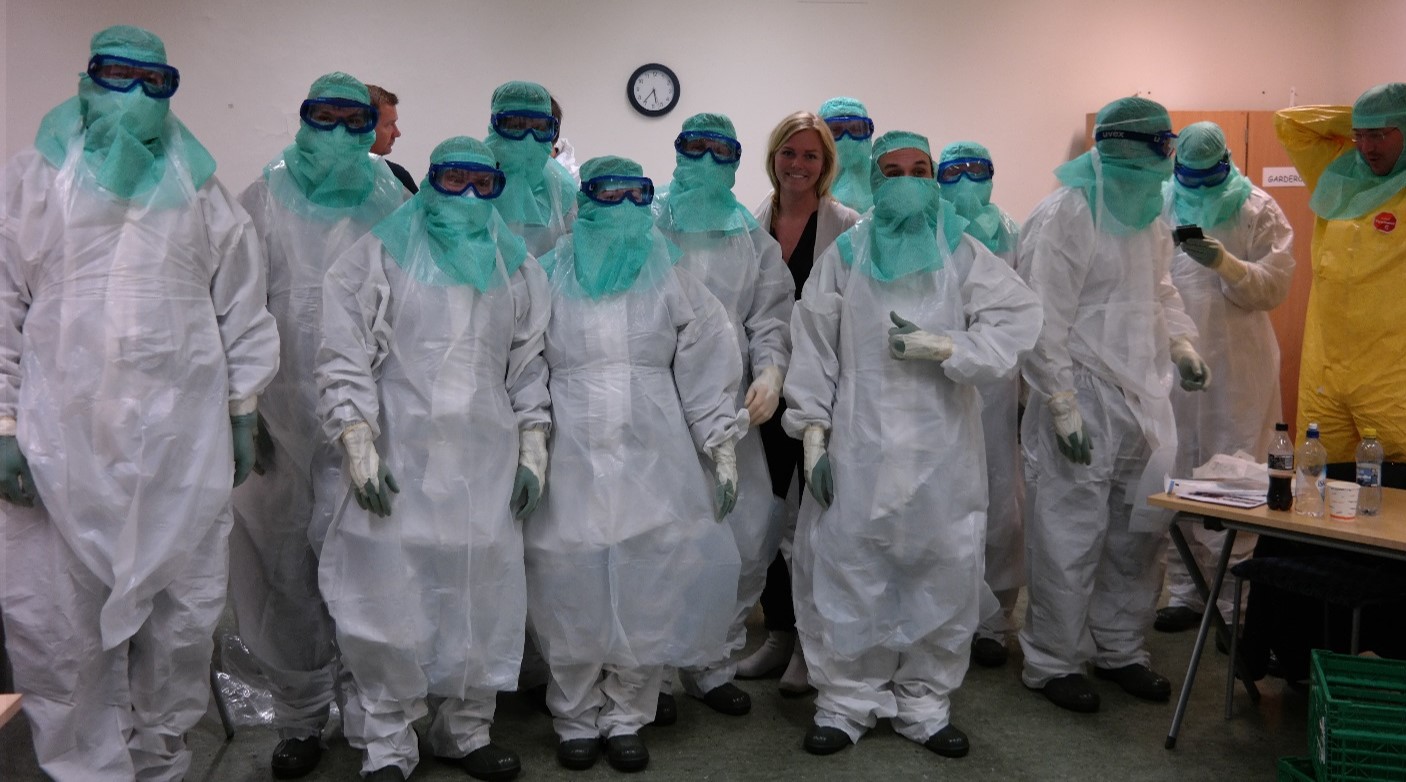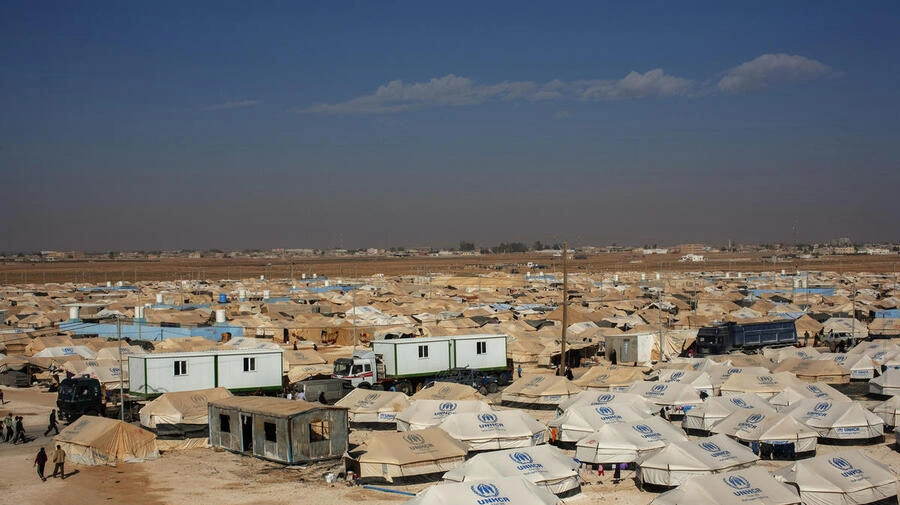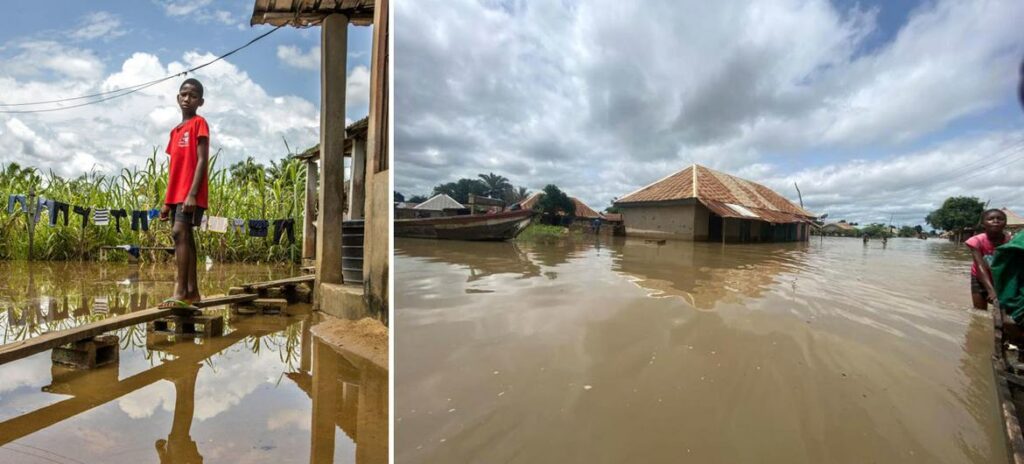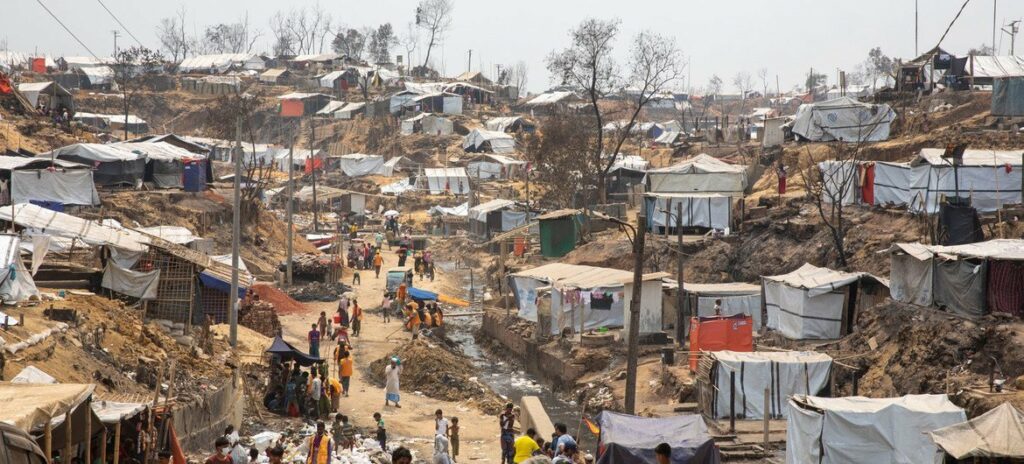During the 2014 Ebola crisis in West Africa, the International Humanitarian Partnership (IHP) played a vital role in supporting health responders. One of its six operations in the region focused on Moyamba, Sierra Leone, where the Norwegian Directorate for Civil Protection (DSB) led a team to establish a fully self-sufficient base camp. Located 120 kilometers east of Freetown, the camp provided critical office and accommodation support for 60 health workers, primarily those serving at the nearby Ebola Treatment Center (ETC) managed by Médecins du Monde (MdM) Spain.
The Moyamba base camp was equipped with generators for 24/7 power, water purification systems, satellite internet provided by Luxembourg Rescue Services Agency (ASS LUX), and kitchen facilities. Accommodation consisted of private cabin tents outfitted with beds, linens, mosquito nets, and electricity for charging devices. Guests also had access to outdoor relaxation areas, a canteen offering three meals daily, and an extended first aid facility staffed around the clock.
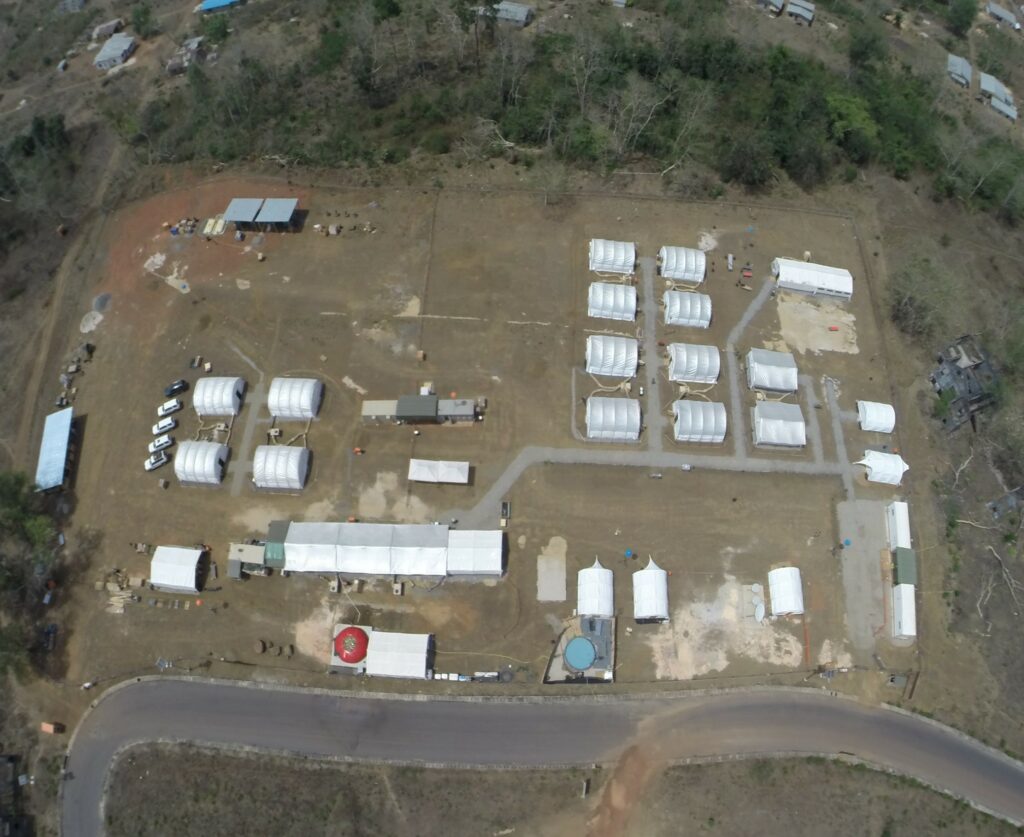
A standout feature was the Ebola Observation Unit (EOU), which allowed isolation and care for suspected cases until testing confirmed diagnosis. Equipped with personal protective equipment (PPE) and decontamination facilities, the EOU safeguarded responders and guests from potential spread.
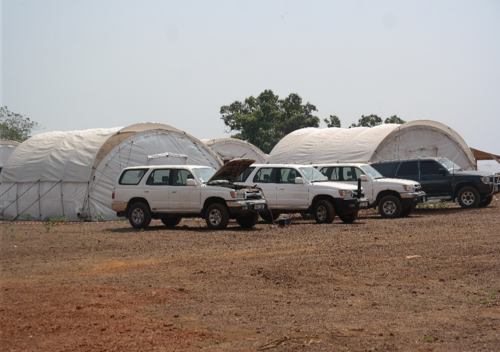
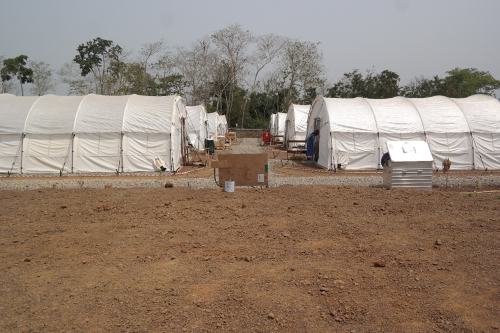
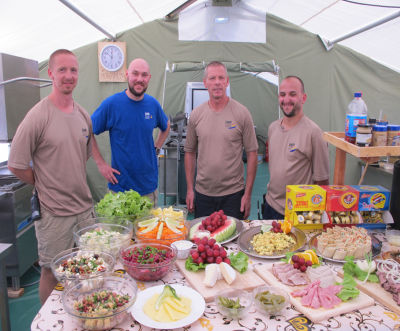
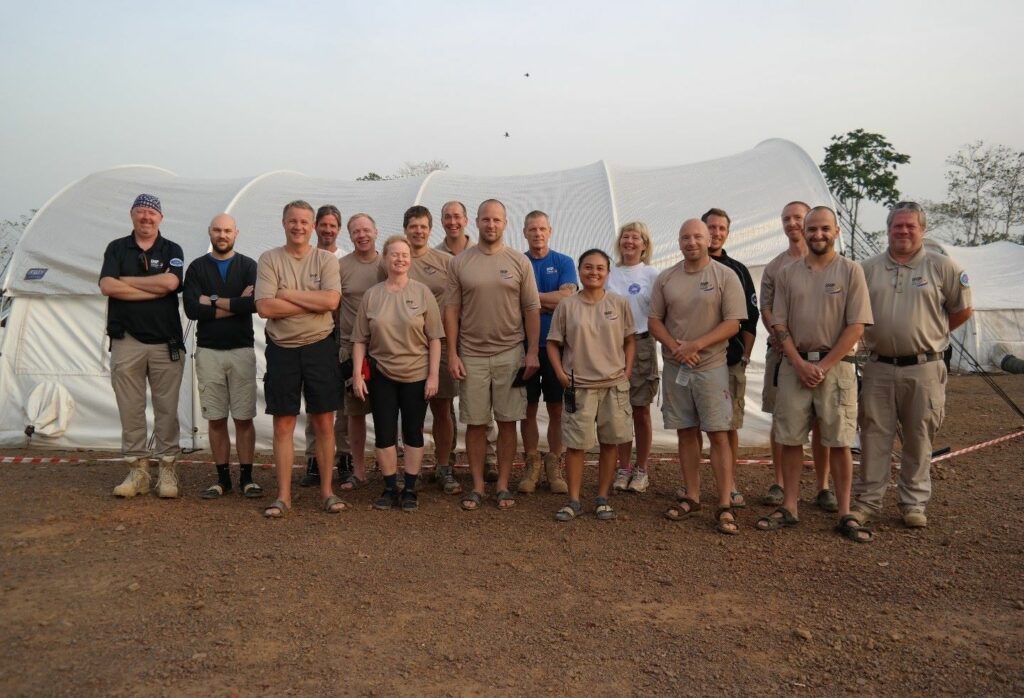
The base camp’s infrastructure and services enabled responders to focus on their mission. From ensuring safe drinking water to providing spaces for rest and collaboration, IHP created a secure environment to recharge after long, grueling shifts. As one IHP leader said: “The IHP services enable the teams to recharge in-between long and hot shifts at the Ebola Treatment Centres, in the field, or elsewhere the fight against Ebola takes them.”
Funded by DFID, DSB, and ASS LUX, IHP’s Moyamba base camp exemplified teamwork and logistical excellence in a high-stakes emergency response.
